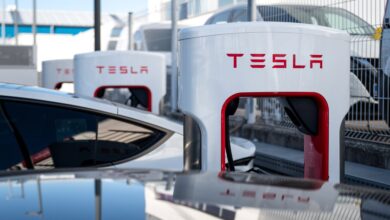Never Fall for These Lies About Hybrid Cars

Hybrid cars can be a cost-effective way to get around — especially if you still have range anxiety about electric vehicles. If you’re tired of burning money on gas, but aren’t ready to commit to a fully electric car, buying a hybrid car in 2024 could be a good move.
But hybrid cars are often misunderstood. There are a few big myths and misconceptions about hybrid vehicles that could lead you astray from boosting your fuel economy. Don’t believe the anti-hybrid hype!
Let’s look at a few big myths and realities about hybrid cars.
1. “They don’t save you much money on gas”
Typical hybrid vehicles will often get significantly better gas mileage than a comparable non-hybrid car. Based on calculations from FuelEconomy.gov, hybrid cars might get gas mileage that is 33%-50% higher (or more).
For example, here are a estimated gas mileage differences for a few major brands of hybrid cars, vs. their non-hybrid equivalents:
| Make and Model | EPA Miles Per Gallon (MPG) | Non-Hybrid MPG | Difference |
|---|---|---|---|
| 2023 Kia Sportage Hybrid EX AWD | 38 mpg | 25 mpg | 52% |
| 2023 Ford Escape ST-Line Elite Hybrid AWD | 39 mpg | 26 mpg | 50% |
| 2023 Toyota Corolla Hybrid LE | 50 mpg | 35 mpg | 43% |
| 2023 Hyundai Sonata Hybrid Limited | 47 mpg | 31 mpg | 52% |
Data source: FuelEconomy.gov and Author’s calculations.
It’s true that hybrid cars usually cost a bit more than their non-hybrid versions, and so you will have to earn back that price difference over time, in the form of a “payoff period.” But if the price of oil (and gasoline) keeps going up due to various global conflicts and uncertainty in the global economy, hybrid cars may become an even better value.
It feels good to burn less gas, and to be less vulnerable to price spikes. Hybrid vehicles can help you save money in the long run — and sometimes in the surprisingly short run. Check out this free calculator tool from the U.S. Department of Energy — you can enter your average miles driven per year and change the gas price based on your area: “Can a Hybrid Save Me Money?”
2. “You can’t get electric vehicle tax credits”
There’s been a lot of media headlines about electric vehicle tax credits of up to $7,500 for the purchase of a new EV. But did you know: some hybrid cars can also qualify for EV tax credits?
You need to choose a special type of car called a plug-in hybrid electric vehicle (PHEV), such as my beloved Toyota Prius Prime. But if you qualify based on your income, and the age and selling price of the vehicle, you can get pre-owned EV tax credits of up to $4,000 for some plug-in hybrid vehicles. Here are a few, according to the U.S. Department of Energy:
- Chevrolet Volt (2011-2019)
- Chrysler Pacifica PHEV (2017-2022)
- Ford Escape Plug-in Hybrid (2020-2022)
- Hyundai Ioniq Plug-in Hybrid Electric Vehicle (2018-2022)
- Toyota RAV 4 Prime Plug-in Hybrid (2021-2022)
3. “Insurance for hybrid cars costs too much”
It’s true that hybrid vehicles tend to have slightly higher auto insurance costs. According to data from Lemonade, hybrid car insurance costs might be about 7%-11% higher than standard auto insurance.
But keep in mind that you have choices to help reduce your auto insurance premium. Shop around for cheap car insurance quotes before you go to the dealership. Consider raising your deductible if you have a decent cash emergency fund. Also, Lemonade (one of our picks for best homeowners insurance companies) offers special discounts for hybrid car insurance.
Bottom line
If gas prices keep going up, the cost savings from a hybrid vehicle can quickly become more significant — making it easier to pay off the difference in sale price vs. a standard car. Hybrid car insurance costs don’t have to be a dealbreaker, either. This is especially true if you choose a plug-in hybrid electric vehicle that can qualify for up to $4,000 of used EV tax credits.
Our best car insurance companies for 2024
Ready to shop for car insurance? Whether you’re focused on price, claims handling, or customer service, we’ve researched insurers nationwide to provide our best-in-class picks for car insurance coverage. Read our free expert review today to get started.



